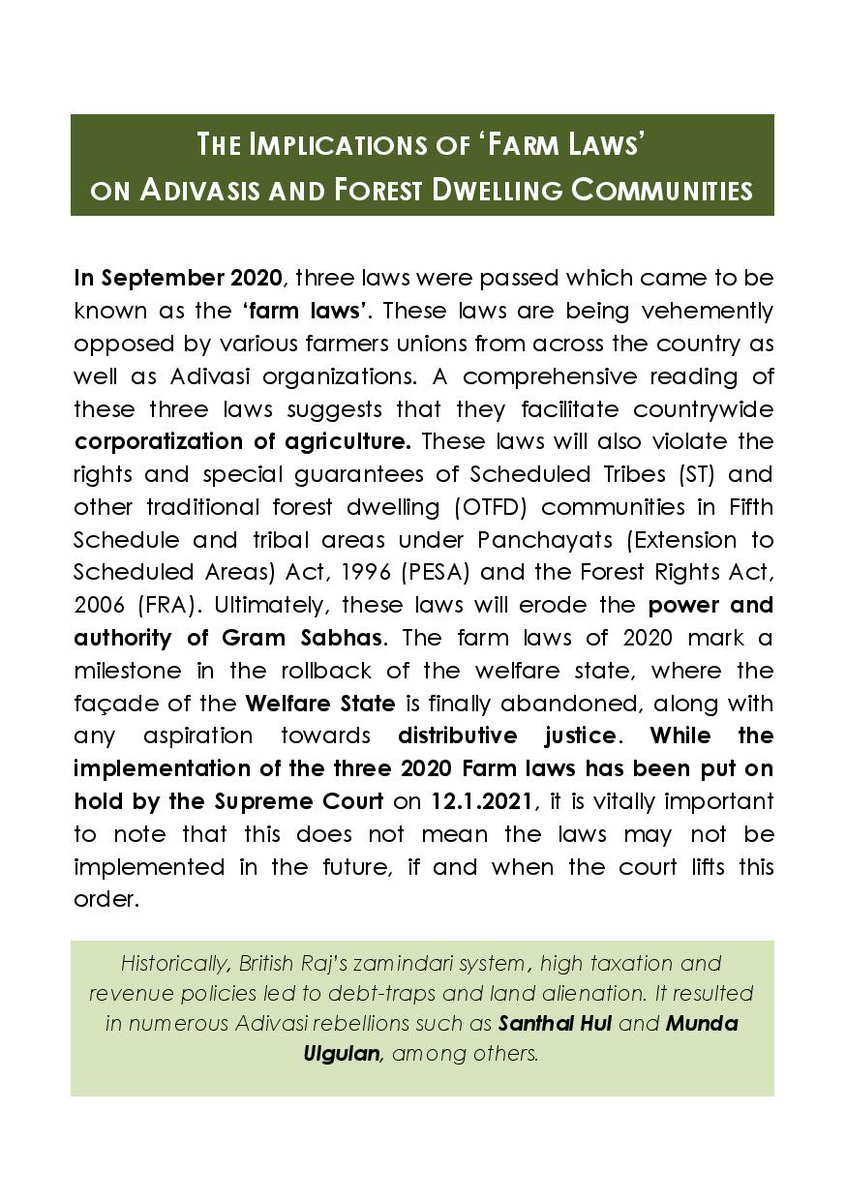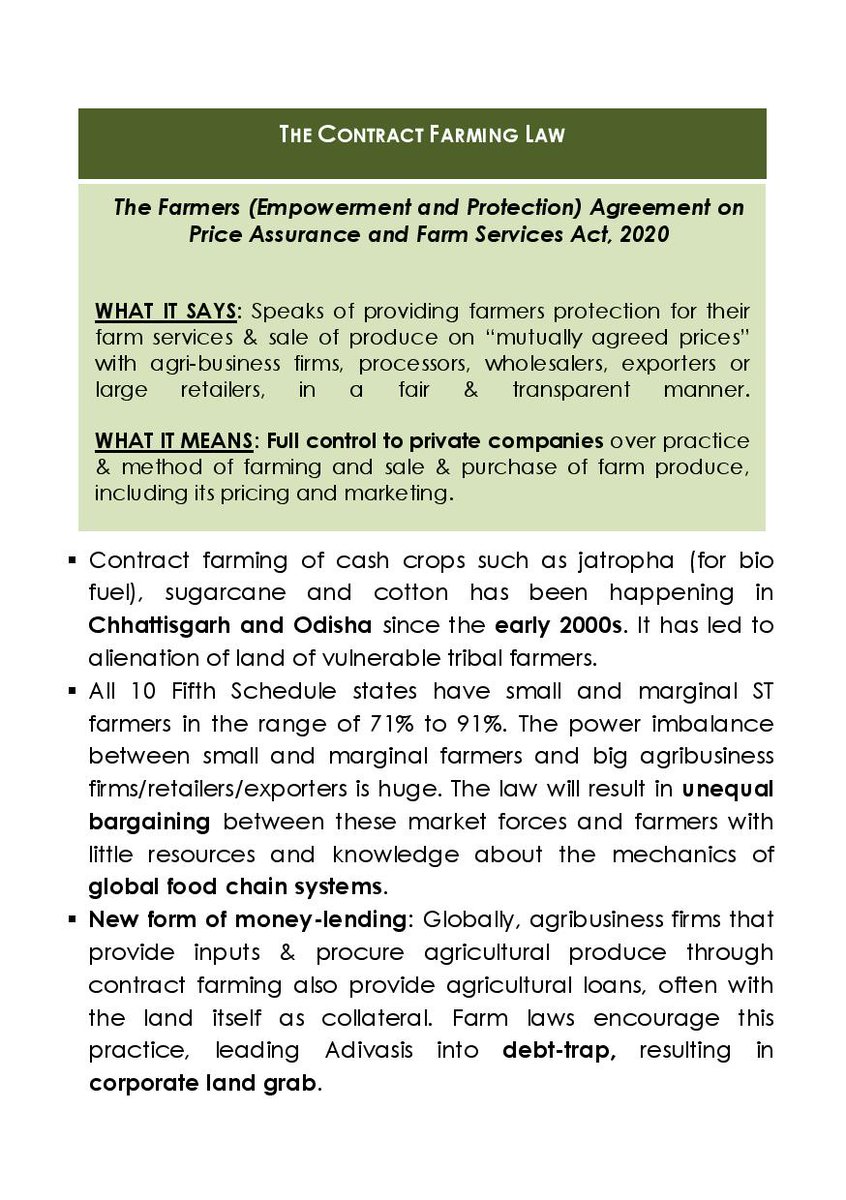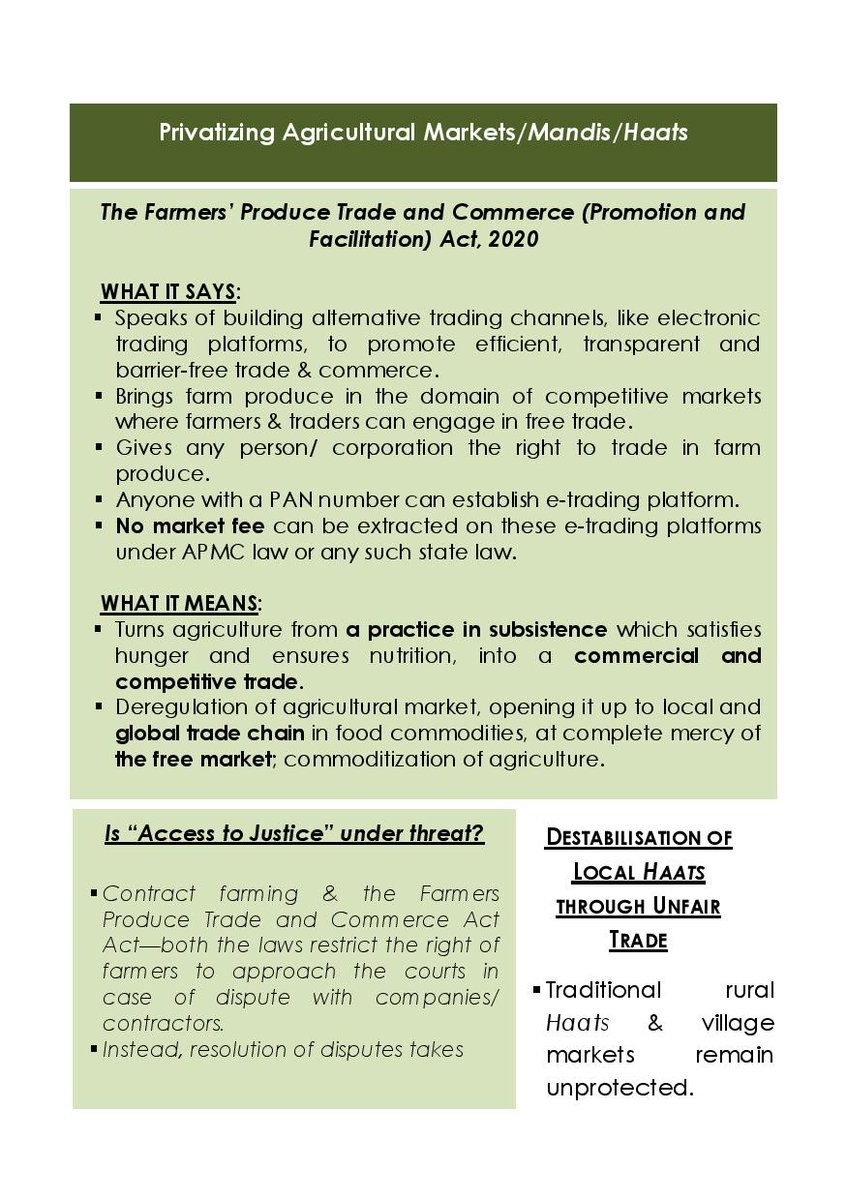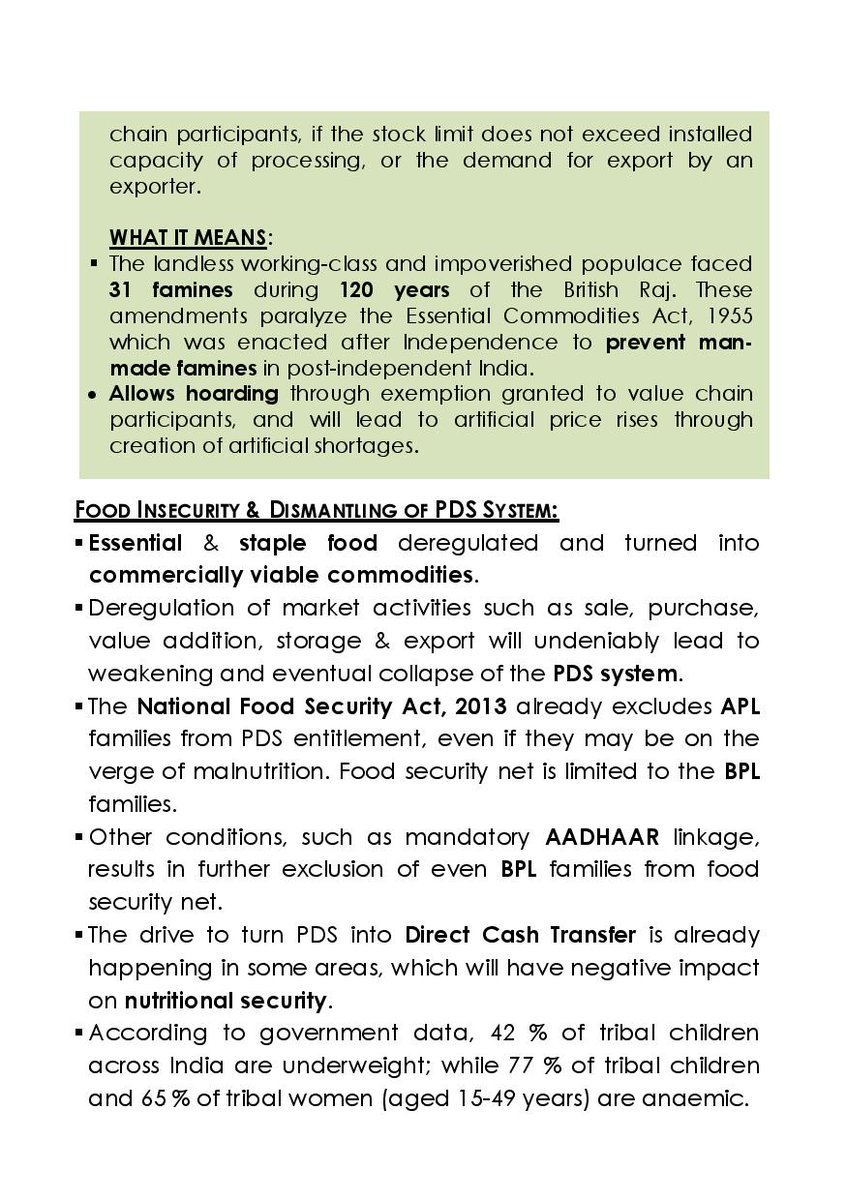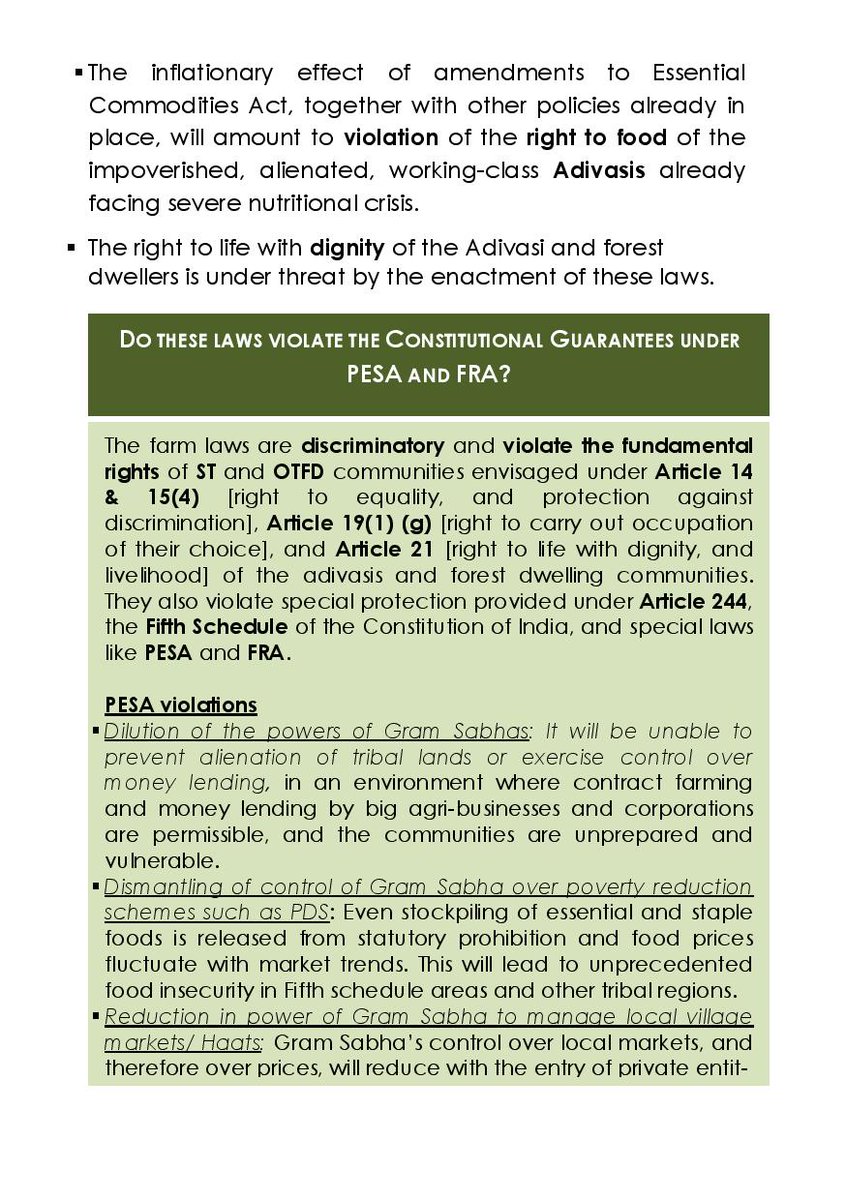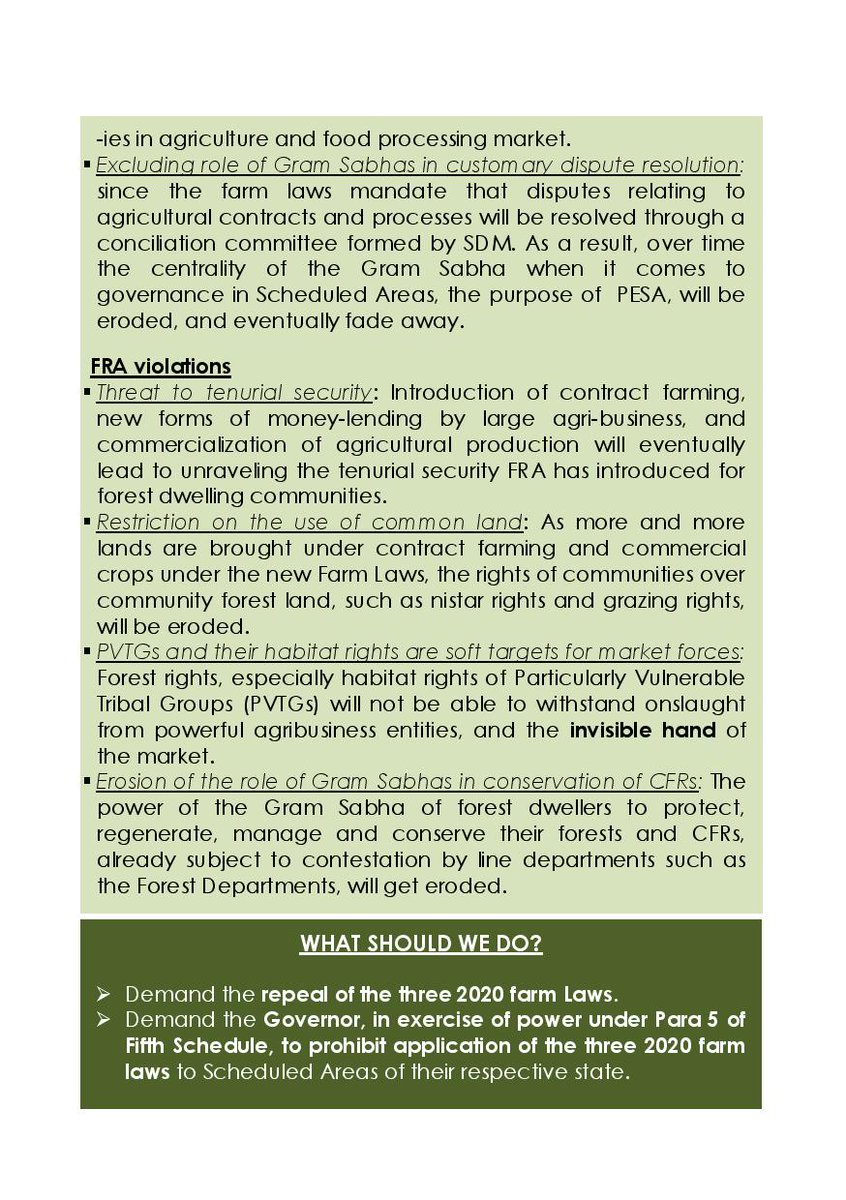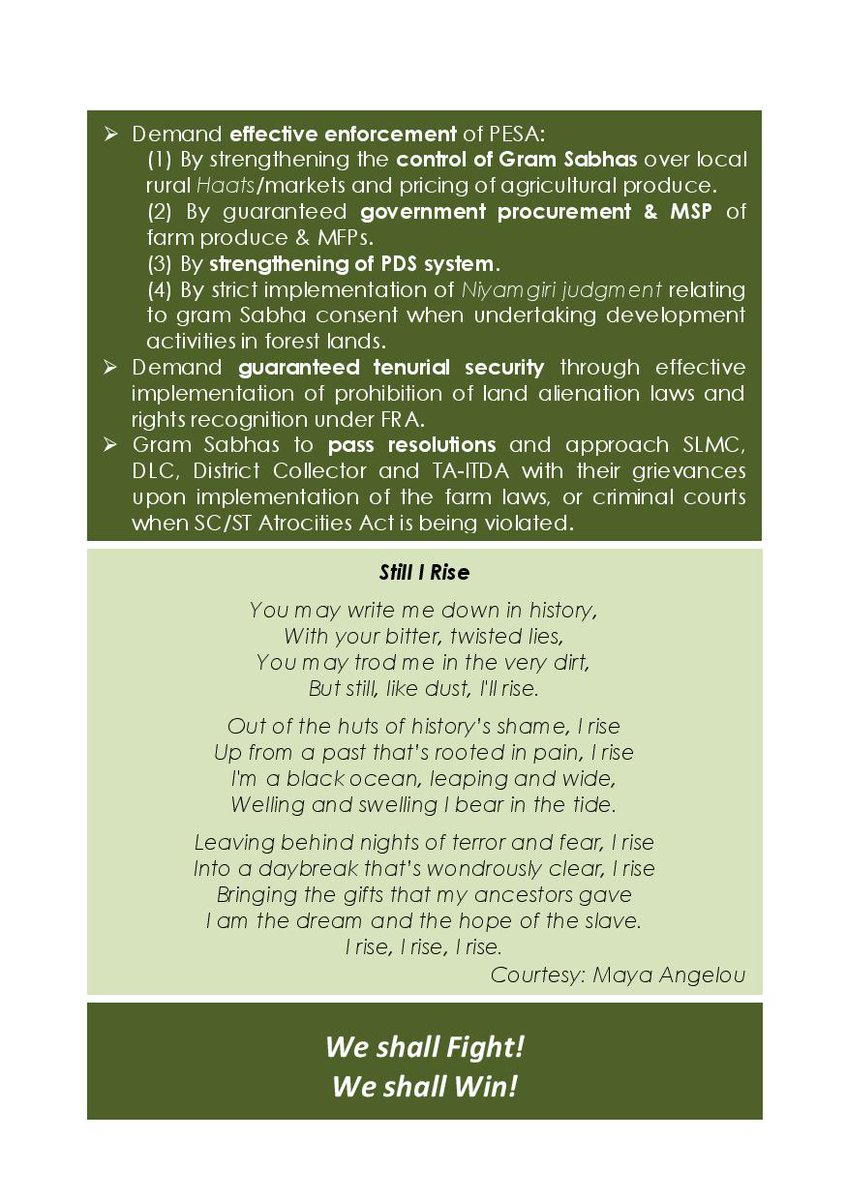Dear Friends,
We have analyzed the implications of the "farm laws" on the Adivasis and other forest-dwelling communities over the past month. Using our analysis we have prepared a Booklet. Hope this analysis will improve our socio-legal understanding of the matter.
Zindabad!
We have analyzed the implications of the "farm laws" on the Adivasis and other forest-dwelling communities over the past month. Using our analysis we have prepared a Booklet. Hope this analysis will improve our socio-legal understanding of the matter.
Zindabad!
@AdivasisMatter @JADS_mp @alokshuklacg @ForestRightsAct @Article14live @LiveLawIndia @AmbedkarCaravan @DalitCamera @PARInetwork
Farm laws will also violate the rights and special guarantees of Scheduled Tribes and other traditional forest dwelling (OTFD) communities in 5th Schedule & tribal areas under PESA and FRA. Ultimately, these laws will erode the power and authority of Gram Sabhas.
While the implementation of the three 2020 Farm laws has been put on hold by the Supreme Court on 12.1.2021, it is vitally important to note that this does not mean the laws may not be implemented in the future, if and when the court lifts this order.
Contract farming of cash crops such as jatropha (for bio fuel), sugarcane and cotton has been happening in Chhattisgarh and Odisha since the early 2000s. It has led to alienation of land of vulnerable tribal farmers.
Globally, agribusiness firms that provide inputs & procure agricultural produce through contract farming also provide agricultural loans, often with the land itself as collateral. Farm laws encourage this practice, leading Adivasis into debt-trap resulting in corporate land grab
All 10 Fifth Schedule states have small and marginal ST farmers in the range of 71% to 91%. The law will result in unequal bargaining between these market forces and farmers with little resources and knowledge about the mechanics of global food chain systems.
Traditional rural Haats & village markets remain unprotected. Aggressive promotion of private & Electronic platforms will lead to disintegration of Mandis & rural Haats. It will lead to unfair trade practices - cartelization and monopoly making market prices volatile.
Essential & staple food deregulated and turned into commercially viable commodities. Deregulation of market activities such as sale, purchase, value addition, storage & export will undeniably lead to weakening and eventual collapse of the PDS system.
According to government data, 42 % of tribal children across India are underweight; while 77 % of tribal children and 65 % of tribal women (aged 15-49 years) are anaemic.
The inflationary effect of amendments to Essential Commodities Act, together with other policies already in place, will amount to violation of the right to food of the impoverished, alienated, working-class Adivasis already facing severe nutritional crisis.

 Read on Twitter
Read on Twitter